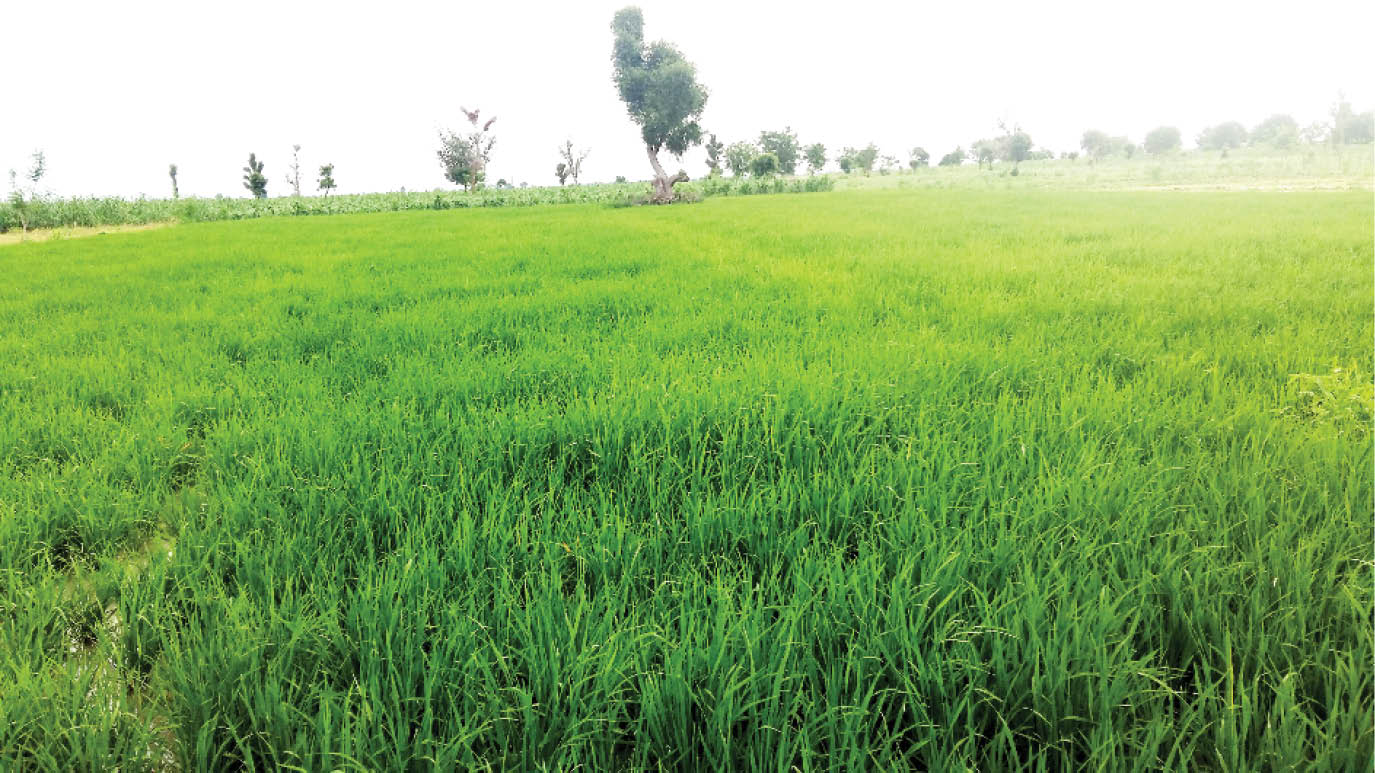Rice farmers will soon harvest twice from single planting — Scientists
Scientists have said research is at an advanced stage for rice farmers

One of the seed producing fields in Makurdi
Scientists have said research is at an advanced stage for rice farmers to harvest twice from single planting.
According to breeding scientists, the research is on how rice ratoons can reproduce after the first harvest in order to enable farmers re-harvest the same plant.
- PODCAST: The Real Implication of CBN’s No-Dollar-For-BDC Policy
- Accountant General illegally withdrew N665.8bn from special Fund – Senate
According to Andrew Shema, a scientist heading the research team in Nigeria, the cost-effective new farming technique is expected to be in practice in the next two years, adding that it will not only improve on farmers output but also reduce cost of production as the second reproduction line of the cereal does not require land clearance, planting or tinning.
Shema told Daily Trust in Birnin Kebbi that cropping was faster in the second phase as the rice attained maturity in lesser period compared to the period that it took in the first phase of production.
Shema, who is the lead scientist and Head of the Kebbi State Office of the National Cereal Research Institute (NCRI), said the research was at present looking at the factors that made rice to give high output and the variables that made a ratoon to be good, adding that when the breeding processes were completed, rice farmers would spend less in production and on the other hand realise greater output.
He explained that the ratoon system of farming was cost-effective because after the first harvest the farmers do not need another money to prepare the land and pay for planting, adding that time needed for the management of the reproduced rice to maturity is shorter compared to the time for the first production.
The rice breeding research work seems promising in Kebbi State because the reproduction of the ratoon requires adequate supply of water for effective management, explaining that there is sufficient supply of water in the state.
Shema further explained that in the past, rice ratoon was only left for cattle to graze on, but that when the ongoing research work was completed, it would aid the farmers, particularly those that were into dry season rice farming to reproduce from single planting with ease.
He assured that farmers would benefit from the rice research, saying, though ratoon cropping cannot give as much as the initial harvest, but can give as much as up to 60 per cent of what was harvested in the first yield.
He said, “The period the ratoon takes to mature is very short compared to the initial planting. We have not completed the research, it is still ongoing. However, we are trying to carry the farmers along as the research progresses so that they will know what we are doing.
“Ratoon cropping matures faster than initial cropping. Ratoon cropping attains maturity for harvest after about 40 to 50 days, but the first planting could last up to 110 to 120 days to attain maturity for harvest. If effectively managed, ratoon cropping could give as much as up to 55 to 60 per cent of the initial harvest.
“The research work is essentially on how to add value to rice production, particularly for rice farmers in Kebbi State. With the research’s result, value will be added, jobs will be created and the economy of the country will also be improved.
“The breeding research work is planned to be carried out in the rainy season and two dry seasons in order to compare results. You should also note that at night temperature falls to 16 and 17 degrees in Kebbi, which is favourable for rice production. We are taking all variables into consideration on how they may affect ratoon reproduction.”
The researcher noted that research work was capital-intensive and therefore called on all stakeholders to invest in research since government alone could not bear the burden.
According to him, his institution alone has over 10 stations across the country, which is becoming increasingly difficult to fund by the government.
He said, “We are, therefore, calling on all relevant stakeholder to support the government in funding research work. The impact of research work result is enormous on both local and national economy.”
